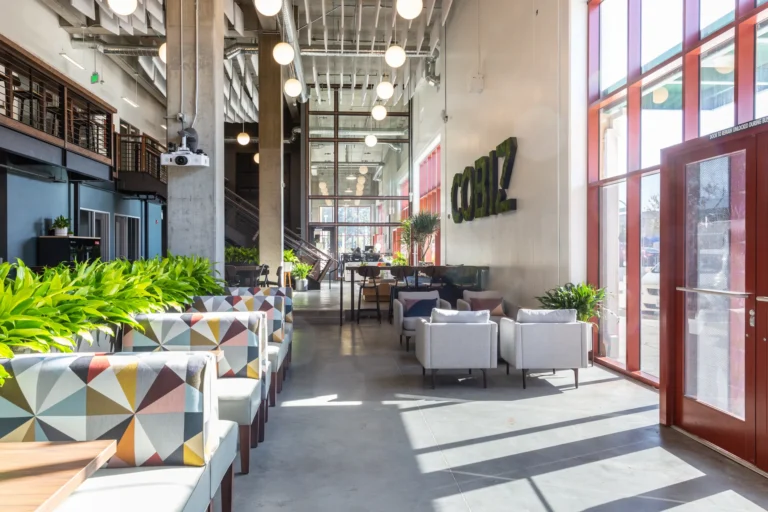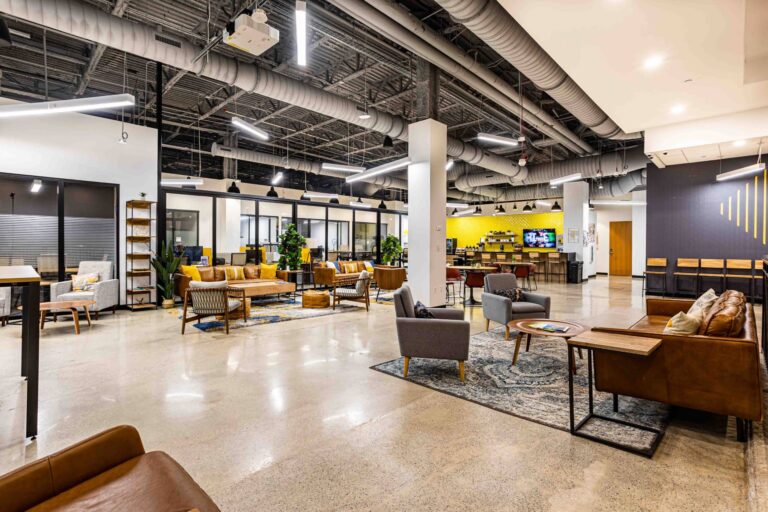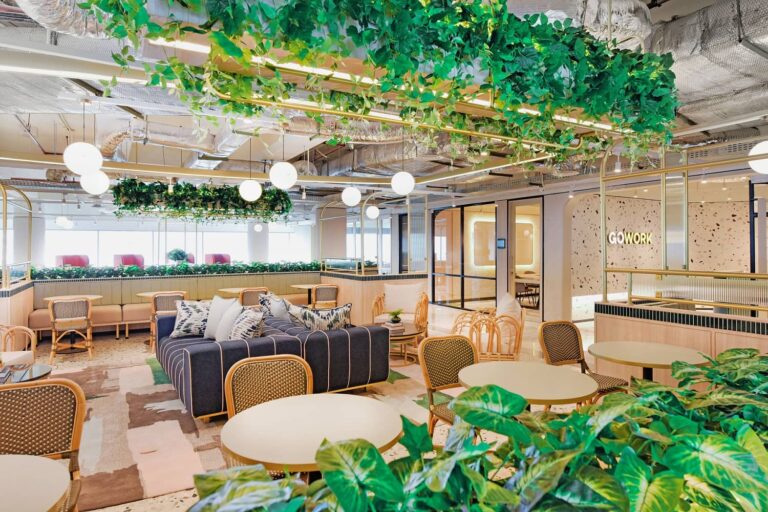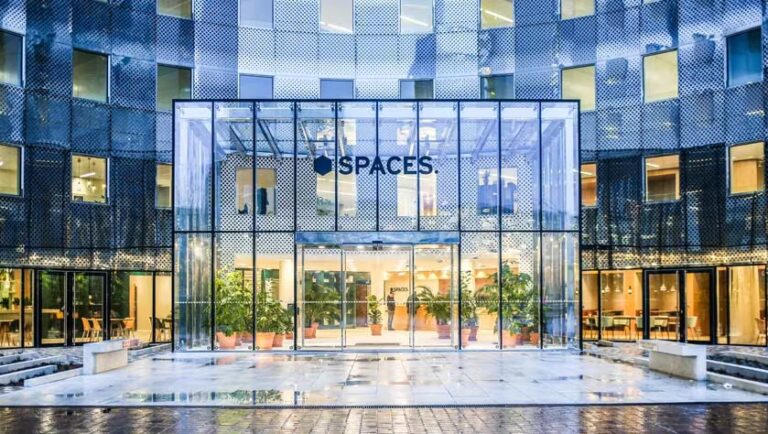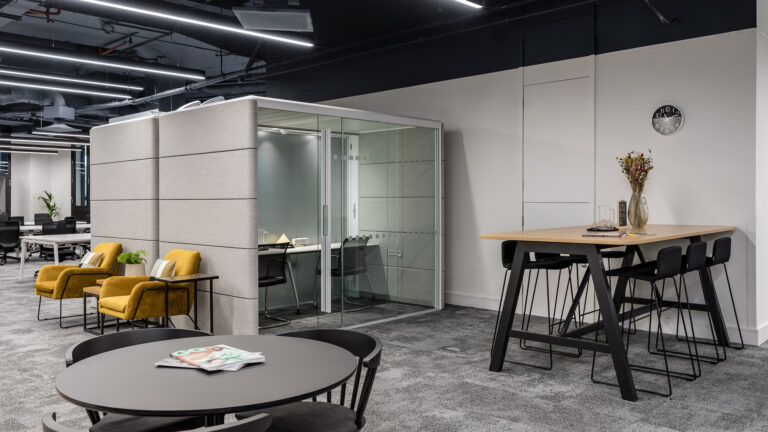Local Coworking Space Your Complete Guide to Finding the Right Nearby Workspace
A local coworking space refers to a shared workspace situated near your community or business activity-typically within your city, district, or neighbourhood-offering flexible access to desks, private offices, meeting rooms, or event spaces. Rather than committing to a full-office lease, you rent a membership or desks from a coworking operator that manages the facility.
In recent years-and especially in 2025-local coworking spaces have become a preferred solution for freelancers, remote teams, startups, and even larger companies looking to decentralize. They support hybrid working models, provide professional infrastructure without heavy commitment, and connect you to local business ecosystems.
Why Choosing a Local Space Matters
Opting for a coworking space close to home or your business base offers several advantages. First, commute time is reduced, which improves work-life balance and productivity. Second, local access means you can drop in whenever required, host clients in a nearby professional environment, and tap into the local community of professionals. Third, local coworking providers tend to cater more specifically to the needs of the local market-offering relevant pricing, cultural fit, networking, and convenience.
Also, because many local coworking spaces allow flexible membership models (day passes, part-time access, hot desks), you avoid the risk of long-term leases when your team size or work pattern may change. This flexibility is particularly relevant in 2025 as more companies adopt hybrid schedules and need agile workspace solutions.
Key Benefits of Selecting a Local Coworking Space

Operational Flexibility & Cost Efficiency
A major benefit of local coworking spaces is operational flexibility-they allow you to scale up or down quickly depending on your needs. You may start with a hot desk or part-time membership, then move to a dedicated desk or private office as your team grows. This avoids the fixed cost burden of standard commercial leases and large upfront fit-out expenses.
This benefit helps businesses avoid being locked into long-term, rigid contracts. Especially for startups or micro-enterprises, local coworking provides a professional workspace in a cost-effective manner while preserving cash flow and flexibility.
Access to Professional Infrastructure and Community
Another significant benefit is access to infrastructure you might not otherwise obtain on your own (especially when starting): high-speed Internet, meeting rooms, printing/scanning, kitchen/lounge areas, business address, and often community events or networking opportunities. A coworking provider takes care of these services, freeing you to focus on your core work.
Moreover, because the space is local, you connect with the local business community-other entrepreneurs, freelancers, consultants, and support services. That local network can lead to partnerships, referrals, and new opportunities. In essence, a coworking space becomes more than just a desk-it becomes a local business hub.
Technology-enabled Experience
Modern coworking operators often include technology tools that enhance the experience: mobile or web apps to book desks or meeting rooms, digital member portals, virtual receptionist services, smart access badges, occupancy tracking, and analytics. Such technology improves convenience and optimises your use of space.
For example, you might use an app to check the availability of meeting rooms at the local branch, or monitor your membership usage and cost per day. The tech component means you’re not just renting a desk-you’re buying a service-oriented membership. This solves the problem of traditional offices, where you have to manage all logistics yourself.
Five Real-World Local Coworking Space Options You Can Join Today
Below are five local coworking space products (each a real-world provider/location) you can evaluate. These examples show a range of locations, sizes, membership modes, and value propositions.
1. Regus Jakarta Coworking Space
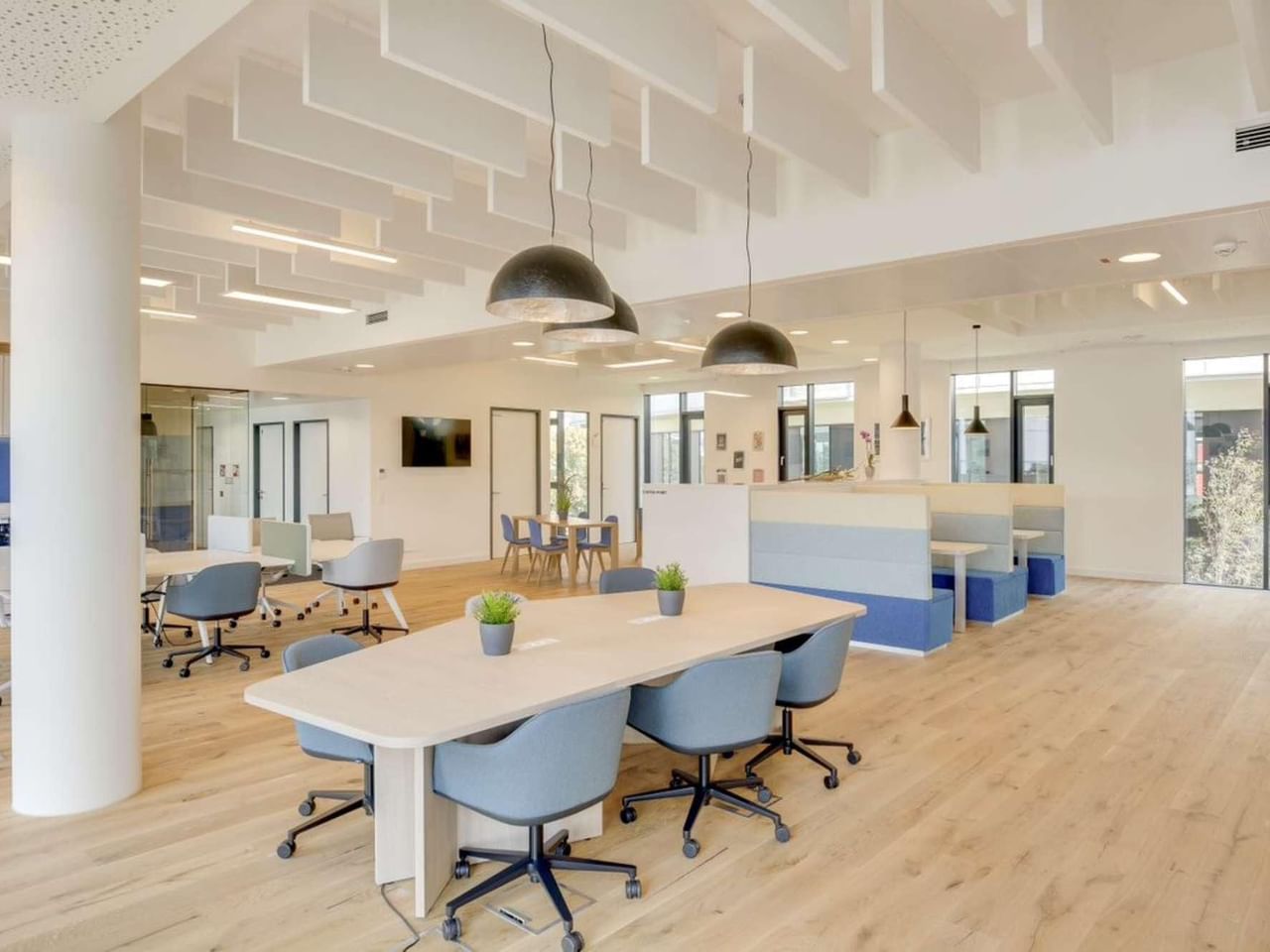
Details: Regus offers local coworking spaces in Jakarta with hot desks, dedicated desks, and private offices. Membership rates start from around IDR 550,000 per person per month, and day-use options from IDR 20,000 per day. Their local network allows access across multiple centres, making it convenient for frequent travellers or remote workers needing flexible local access.
Benefits: For local businesses in Jakarta, this gives access to a professional workspace, flexible terms, and the ability to scale. As pricing is transparent and functionally local, the cost is predictable. It solves the challenge of finding local quality space without committing toa long-term lease.
Use Case: A freelancer living in South Tangerang wants to work in a professional environment in Jakarta two days a week. They take a day-pass or part-time membership at Regus Jakarta, access a designated hot desk near their clients, and avoid working from home or cafés.
How to Sign Up:
Book Regus Jakarta Membership →
2. GoWork Jakarta Coworking Space
Details: GoWork has over 25 locations across Indonesia, including many in Jakarta, Tangerang, Surabaya, and Bali. They offer hot desks starting from about IDR 1,000,000 per month. Their pricing structure is designed for flexibility and scaling, and they cater strongly to local startups and freelancers.
Benefits: For local entrepreneurial teams in the Jakarta/Banten region, GoWork offers accessible entry cost, multiple local branches, and networked membership. This solves the problem of location rigidity and allows easy commute for team members distributed in the city.
Use Case: A small digital agency with a 3-person team based in South Tangerang needs a professional office in Jakarta for client meetings and staff two days per week. They join GoWork at a Jakarta location, use the private office suite part-time, and scale up as they hire.
How to Sign Up:
Join GoWork Today →
3. The Executive Centre Jakarta Coworking Space
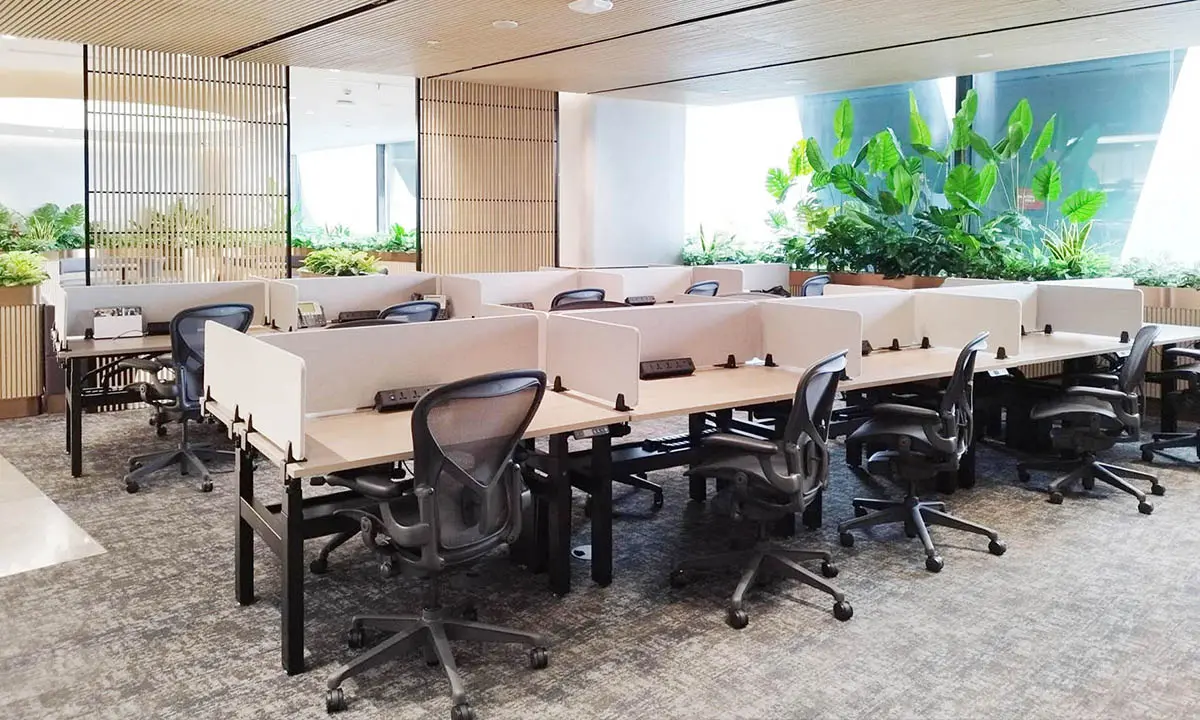
Details: The Executive Centre offers premium local coworking space in Jakarta CBD and across Asia-Pacific, with hot desks, dedicated desks, day offices, meeting rooms, and global pass options. Rates start from IDR 1,750,000/month for r city pass in Jakarta.
Benefits: For businesses looking for highly professional, premium workspace locally-and perhaps also access to a regional network service, it offers a strong solution. It addresses the need for quality, brand image, and regional mobility within a local coworking branch.
Use Case: A consultancy firm with 10 staff based in Banten plans to meet clients in Jakarta and needs a high-end local office for two days per week. They lease a day-office or dedicated office at The Executive Centre Jakarta, get access to meeting rooms, business lounge, and scale as required.
How to Sign Up:
Explore Membership at The Executive Centre →
4. The Network Hub Vancouver (as an example of the local coworking global concept)
Details: While this example is Toronto/Vancouver-based, the concept of a local coworking space applies globally. The Network Hub offers flexible coworking, dedicated desks, and private offices with a local network and community.
Benefits: For local professionals in non-metropolitan cities or smaller districts who still need professional workspace, a local coworking hub replicates the benefits of larger cities. It solves the problem of remote workers or freelancers being isolated and lacking access to professional office amenities locally.
Use Case: A software consultant living in Tangerang wants occasional office space near home rather than commuting to central Jakarta daily. They join a local coworking hub in Tangerang or nearby, use a dedicated desk membership, attend networking events locally, and avoid long commutes.
How to Sign Up:
Find Membership Options at The Network Hub →
5. Regus Indonesia Local Coworking Network
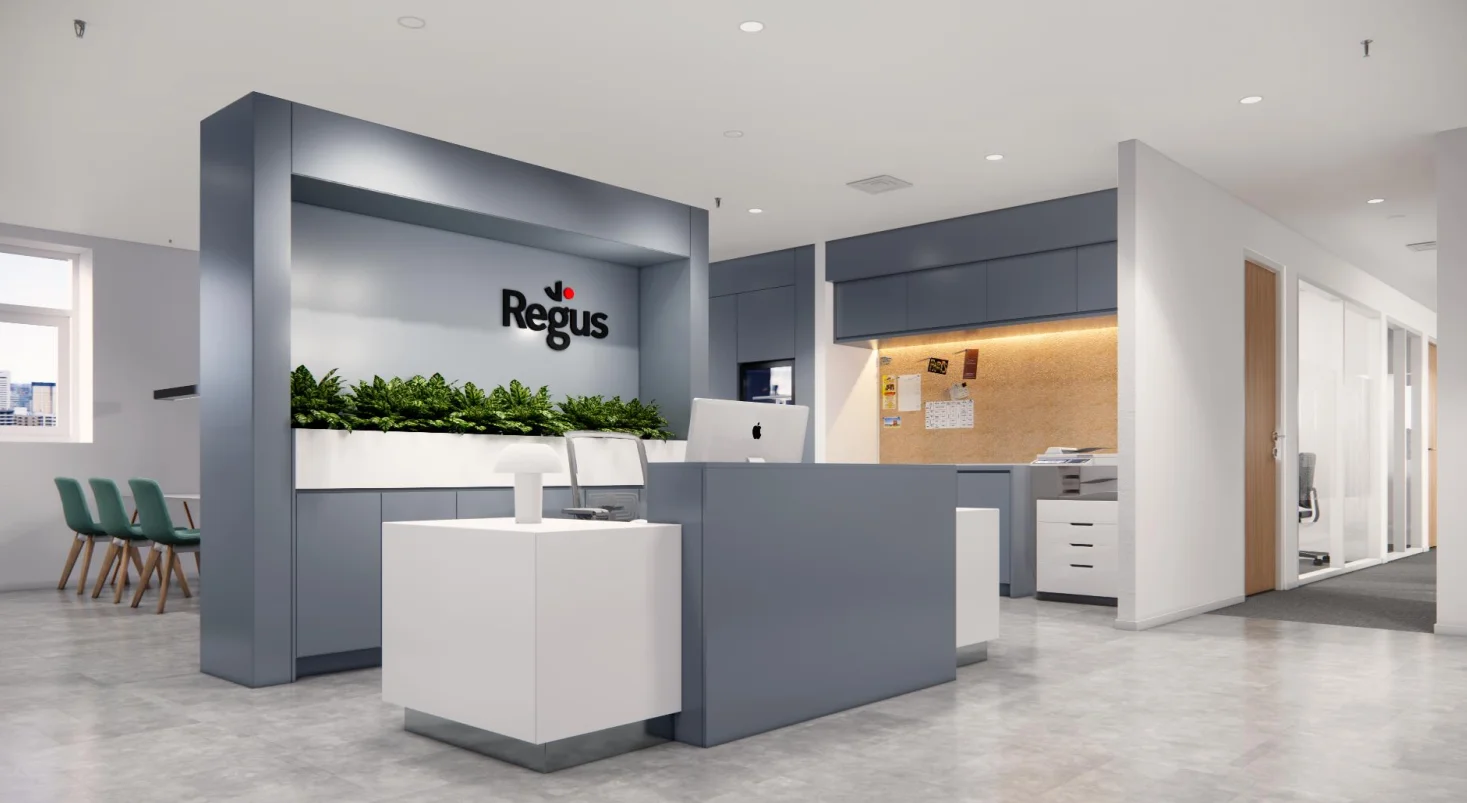
Details: Regus’s local Indonesian network spans Jakarta, Tangerang, Bali, Surabaya, and beyond. According to listings, hot desk or dedicated desk options start from around IDR 1,250,000 monthly, depending on location.
Benefits: The benefit of a strong local provider network means easier access in multiple nearby locations (important if your team is distributed) and consistency of service and amenities across branches. It solves the problem of inconsistent coworking quality when using very small local operators.
Use Case: A regional consultancy with staff spread between Banten, Jakarta, and Bali wants access to coworking space near each major hub. They sign up for a local coworking network membership, enabling team members to access desks/meeting rooms in whichever local city they are working that week.
How to Sign Up:
Discover Local Branches at Regus Indonesia →
How to Choose and Join a Local Coworking Space
Step 1: Define Your Local Needs and Preferences
Start by considering your team size, budget, location proximity (commute time), membership flexibility needed (days/hours per week), preferred amenities (meeting rooms, phone booths, printing, lounge), growth projections, and whether youneed aa private office vs a shared desk. Local coworking spaces vary widely in terms of quality, community, and cost.
Step 2: Evaluate Location, Accessibility, and Local Community
Visit the space if you can. Check commute convenience (for you and your team), nearby transport links, parking if needed, neighbourhood environment (client impression), access hours, and other local logistical issues. A local coworking space’s value is not only desk cost but also how easily it fits into your daily rhythm. Review the community vibe-are there members that align with your business? The local ecosystem matters.
Step 3: Compare Membership Terms, Pricing, and Flexibility
Ask about membership models: day passes, dedicated desks, private offices, meeting room credits, lock-in term, escalation, and exit clauses. Prices vary by location and contract term. For example, in Jakarta, hot-desk monthly pricing is from IDR 550,000 upwards, and dedicated desks are higher. Confirm what’s included (internet, utilities, cleaning, security) and what extra services cost (meeting rooms, printing). A good local coworking provider will offer transparent pricing and flexible terms.
Step 4: Onboard and Leverage Technology Features
Once you select a branch and membership level, ensure a smooth onboarding. Set up your member profile, install any provider app for bookings (desks, meeting rooms), check the wifi and IT support, understand community events, and how to use amenities like business address or mail service. Use the technology to manage your membership, scan usage, book resources, and avoid friction.
Step 5: Evaluate Performance and Adjust if Needed
After a month or two, assess whether the space meets your needs: commute, comfort, productivity, network valu andnd cost ratio. If your team grows or changes, check whether your membership can scale or if you can migrate to another local branch. The ability to adapt is a key advantage of coworking.
Use Cases: Why You Might Choose a Local Coworking Space
Use Case 1: Freelancer or Remote Worker Seeking Professional Local Space
Problem: Working from home or cafés affects productivity, professionalism, and networking.
Solution: A local coworking space gives you a dedicated desk or private office near your locality, a professional environment, meeting room access, and a local community. This solves the isolation and professionalism gap.
Use Case 2: Small Local Team Avoiding Long-Term Lease Commitments
Problem: A small team of 4-10 people needs a base but wants flexibility (project basis) and doesn’t want to commit to a 3-5 year lease.
Solution: Rent a private office at a local coworking space with a omonthlyor short-term membership, access to meeting rooms, and scale up or down as needed. This solves the risk of over-commitment and excessive overhead.
Use Case 3: Satellite Branch of a Larger Company or Remote Office
Problem: A larger company wants a local presence in a suburb or satellite city without heavy investment.
Solution: They rent memberships/private suites locally, provide staff with local workplace access while the main HQ remains elsewhere. This addresses geographic flexibility and reduces commute for the local team.
Use Case 4: Expansion into New Locality or Market
Problem: A company wants a presence in a new city or region, but it i uncertain about long-term commitment.
This mitigates the risk of leasing large full-floor offices prematurely.
Use Case 5: Hybrid Work Model with Distributed Team
Problem: Team members are hybrid; some work at home, others need office access occasionally, and commute patterns vary.
Solution: A local coworking space membership allows team members to access office infrastructure when required, close to home, rather than commuting to central HQ. This solves the inefficiency of empty office desks and supports flexible work.
Frequently Asked Questions
Q1: How much does it cost to rent a local coworking space?
Costs vary by location, provider, type of membership (hot desk vs dedicated desk vs private office),) and contract term. For example, in Jakar, ta hot desks at Regus start around IDR 550,000 per person per month and day-use from IDR 20,000 per day.
Q2: Is long-term commitment required for local coworking memberships?
Not necessarily. Many providers offer flexible membership models: daily, monthly, part-time, and short-term. Some private offices may require longer minimal terms, but in gen, coworking is designed for flexibility. Always check contract terms and exit clauses.
Q3: What should I look for when choosing a local coworking space?
Key criteria: proximity/commute ease, membership flexibility, amenities (internet, meeting rooms, printing, lounge), community/network value, professional impression (client visits), scalability for your team, membership terms (lock-in, pricing), local cu,lture and whether the provider meets your business needs (privacy level, client access, branding options).
